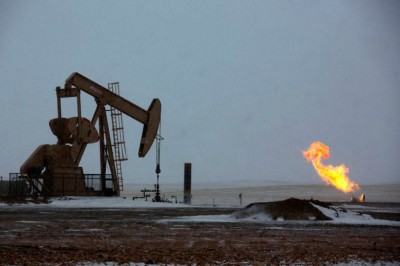South Korea's KOGAS says interested in US shale gas projects
SEOUL (Reuters) -- Korea Gas Corp (KOGAS), the world's No.2 buyer of liquefied natural gas (LNG), would be "interested" in participating in US shale gas projects, with such investment curbing any potential trade pressure on South Korea from the US government.
 |
| Photo Courtesy of Reuters. |
US President Donald Trump, who has dropped out of the 12-nation Trans-Pacific Partnership pushed by his predecessor Barack Obama, has repeatedly criticized the trade policies of South Korea's neighbors, Japan and China.
"US trade pressure is likely to increase, but US gas investments can work as a tool against trade pressure," Lee Seung-hoon, CEO of state-run KOGAS, said at a forum in Seoul.
Expected to become an importer of LNG just a decade ago, the shale gas revolution in the United States unlocked cheap, abundant gas supplies, allowing the country to become an exporter instead.
Benefiting from the Panama Canal expansion last year that allows bigger ships to cross from the Gulf of Mexico into the Pacific, it has been pushing to ship more cargoes to meet surging demand in parts of Asia.
"Securing US shale gas is crucial because it's an important resource," said Lee, adding that such imports would help keep its supplies stable.
KOGAS in 2012 signed a deal with Texas-based Cheniere to bring in 2.8 MMt of LNG annually for 20 years starting from this year. Lee said the first cargoes from the deal were expected to arrive in South Korea this summer.
Lee also said that the company could eventually import LNG from both the United States and Iran without so-called 'destination restrictions', or clauses in contracts that limit possible buyers for any resales of the cargoes.
"When new suppliers enter, they cannot request destination restrictions ... we can secure supplies that don't carry destination restrictions," he said.
Iran, despite having some of the world's biggest natural gas reserves, does not have LNG export facilities, so shipping its gas to South Korea would require vast investment and would take many years to develop.
But Lee said that South Korean demand for LNG would keep falling in the short-term due to increased electricity output from nuclear and coal-fired power plants. The country is the world's second-biggest LNG importer after Japan.
"This year South Korea's LNG demand is expected to remain flat at around 30 MMt," Lee told Reuters on the sidelines of the event.
Reporting by Jane Chung; Additional reporting by Henning Gloystein; Editing by Richard Pullin and Joseph Radford

- Freeport LNG export plant in Texas reports shutdown of liquefaction train
- TotalEnergies and Mozambique announce the full restart of the $20-B Mozambique LNG project
- RWE strengthens partnerships with ADNOC and Masdar to enhance energy security in Germany and Europe
- Five energy market trends to track in 2026, the year of the glut
- Venture Global wins LNG arbitration case brought by Spain's Repsol



Comments